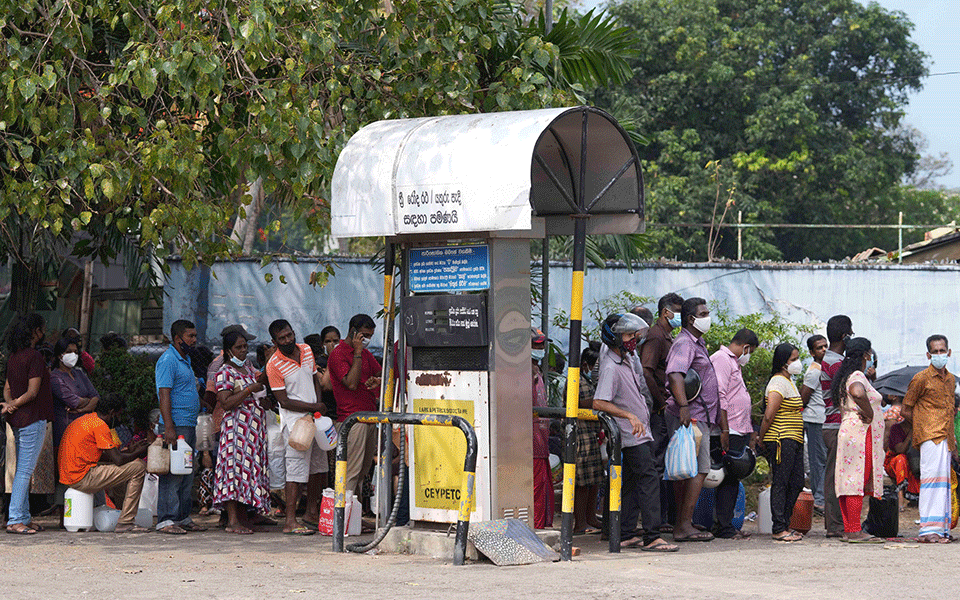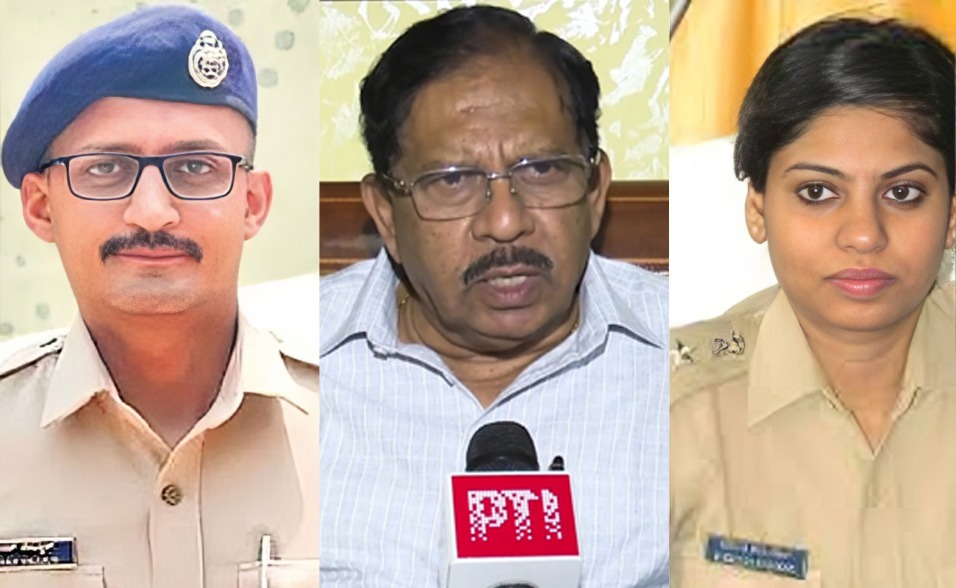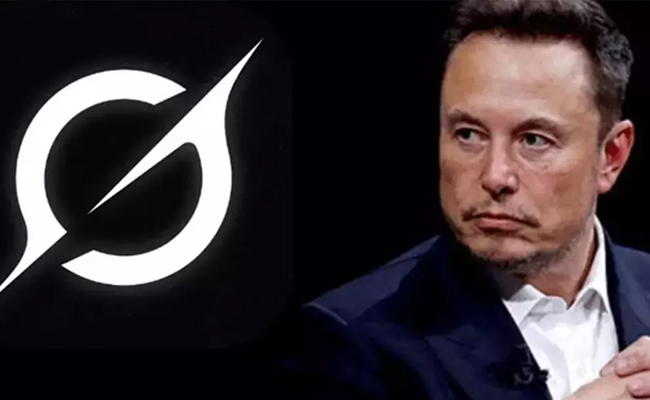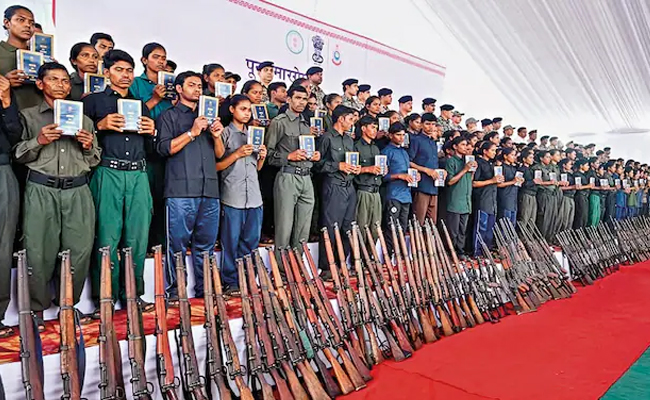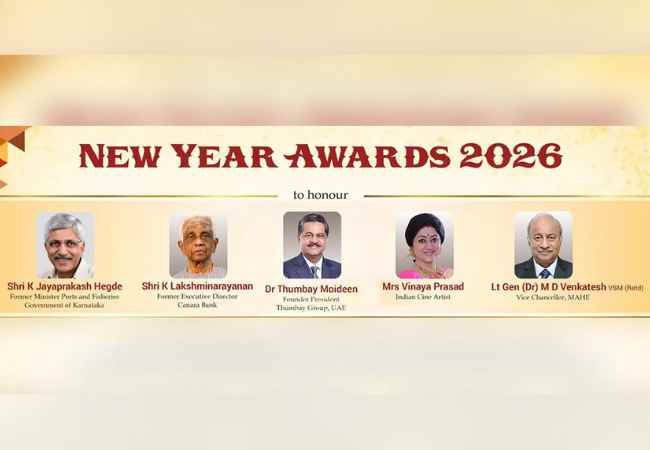Colombo(PTI): Crisis-hit Sri Lanka on Tuesday raised the petrol price by 24.3 per cent and diesel by 38.4 per cent, a record hike in fuel prices amidst the country's worst economic crisis due to the shortage of foreign exchange reserves.
With the second fuel price hike since April 19, now the most-used Octane 92 petrol would cost 420 rupees (USD 1.17) and diesel 400 rupees (USD 1.11) a litre, an all-time high.
The decision to raise the Octane 92 petrol price by 24.3 per cent or 82 rupees and diesel by 38.4 per cent or 111 rupees per litre was taken by the state fuel entity, Ceylon Petroleum Corporation (CPC).
Fuel Price will be revised from 3 am today. Fuel pricing formula that was approved by the Cabinet was applied to revise the prices, Power and Energy Minister Kanchana Wijesekara said on Twitter.
Price revision includes all costs incurred in importing, unloading, distribution to the stations and taxes.
The Cabinet also approved the revision of transportation and other service charges accordingly. The formula will be applied every fortnight or monthly, he said.
The hike came as the public continues to suffer in long queues at fuel stations hit by shortages. Lanka IOC, the Sri Lankan subsidiary of India's oil major Indian Oil Corporation, has also raised the retail prices of fuel.
We have raised our prices to match the CPC, Manoj Gupta, the CEO of LIOC, told PTI.
Meanwhile, the auto-rickshaw operators said they would raise the tariff to be 90 rupees per first kilometre and 80 rupees for the second onwards.
As a measure to mitigate the costs, the government announced that the heads of institutions would be given the discretion over which employees would be essential to report physically. The rest be allowed to work from home.
Lanka IOC has been in operation in Sri Lanka since 2002.
Sri Lanka has been mulling different options to facilitate measures to prevent fuel pumps from going dry, as the country faces a severe foreign exchange crisis to pay for its imports.
The island nation is grappling with an unprecedented economic turmoil, the worst since its independence from Britain in 1948. It is struggling with a shortage of almost all essentials, due to the lack of dollars to pay for the imports.
A crippling shortage of foreign reserves has led to long queues for fuel, cooking gas and other essentials while power cuts and soaring food prices heaped misery on the people.
The economic crisis has also triggered a political crisis in Sri Lanka and a demand for the resignation of President Gotabaya Rajapaksa. The crisis has already forced prime minister Mahinda Rajapaksa, the elder brother of the president, to resign on May 9.
An inflation rate spiralling towards 40 per cent, shortages of food, fuel and medicines and rolling power blackouts have led to nationwide protests and a plunging currency, with the government short of the foreign currency reserves it needed to pay for imports.
Let the Truth be known. If you read VB and like VB, please be a VB Supporter and Help us deliver the Truth to one and all.
Bengaluru: Across Karnataka, a serious discussion has begun after the violence in Ballari and the swift action taken against police officers who were on the ground that day. The core question being asked is simple: when law and order fails, why are police officers the first to be shown the door, while political responsibility is quietly pushed aside?
The January 1 clash in Ballari was not a sudden street fight. It was a political confrontation involving supporters of two sitting MLAs. A banner related to the unveiling of a Valmiki statue became the flashpoint. What followed was stone-pelting, firing, and the death of a Congress worker. The situation spiralled within hours.
Within a day, Ballari SP Pavan Nejjur was suspended. Soon after, senior officers were reshuffled. Deputy Inspector General of Police Vartika Katiyar was transferred. No official reason was cited in the notification. But the timing made one thing clear: accountability, at least on paper, had been fixed.
Since then, there has been unease within police circles and political debate outside it.
Unconfirmed reports that Nejjur attempted suicide after his suspension were firmly denied by senior officers and the home minister. They said he was safe, resting, and under stress. Still, the very fact that such reports gained traction says something about the pressure officers feel when action is taken overnight, without public clarity.
Opposition leaders have called Nejjur a scapegoat, pointing out that he had taken charge only hours before the violence. They have asked how an officer can be blamed for a political clash he barely had time to assess. They have also drawn parallels with earlier incidents where police leadership was suspended after tragedies, while political decision-making remained untouched.
However, responding to this criticism, Home Minister G Parameshwara rejected the argument that the suspension was unfair because Nejjur had assumed charge only hours earlier. “It is not important whether he reported to duty on the same day (of incident) or one hour back. Duty is duty. He is not new to the department. IPS officers are trained to handle such situations any time. If he had acted swiftly and promptly, he could have prevented the situation from escalating.” He had said adding that Nejjur did not discharge his duties properly and that this was the reason for his suspension.
Now, fresh and unconfirmed reports suggest that Vartika Katiyar may have met a senior cabinet minister, questioning why she was made to pay the price for a situation that was political in nature. There is no official confirmation of this meeting. But the talk itself has added fuel to the debate.
What is being discussed in the state is not whether the police made mistakes. Many acknowledge that the situation on January 1 was mishandled. A clash earlier in the day was allowed to cool down without strong preventive action. Later, a banner came up near a politically sensitive location. The crowd should not have been allowed to build up. Better anticipation was needed.
At the same time, critics are asking whether the entire burden can be placed on officers when the trigger itself was political rivalry. Who installed the banner? Who mobilised supporters? Who had armed private gunmen present at the spot? These are questions that are still part of the investigation, yet administrative punishment moved faster than political accountability.
This has led to a wider comparison with past incidents, including the Bengaluru stampede after the RCB victory celebrations. There too, police officers were suspended after lives were lost, while decisions taken at higher levels were defended as unavoidable. Many are now saying Ballari fits into the same pattern.
The argument being made is not that the police are blameless. The argument is that responsibility appears to stop at the uniform. When things go wrong, officers are transferred or suspended to send a message. But when the violence is rooted in political rivalry, that message feels incomplete.
Within police ranks, there is also quiet concern about working conditions. Officers say they are expected to manage volatile political situations overnight, often with little room to push back against powerful interests. When things hold, they are invisible. When they collapse, they stand alone.
The Ballari episode has once again exposed this fault line.
For the government, the challenge is larger than one suspension or transfer. The real test is whether it is willing to publicly acknowledge political failures when law and order breaks down, instead of letting the system suggest that the police alone dropped the ball.
For now, what remains is a growing feeling across Karnataka that accountability is selective. And that whenever politics turns violent, the easiest answer is to change the officers, not the decisions that led to the violence in the first place.

